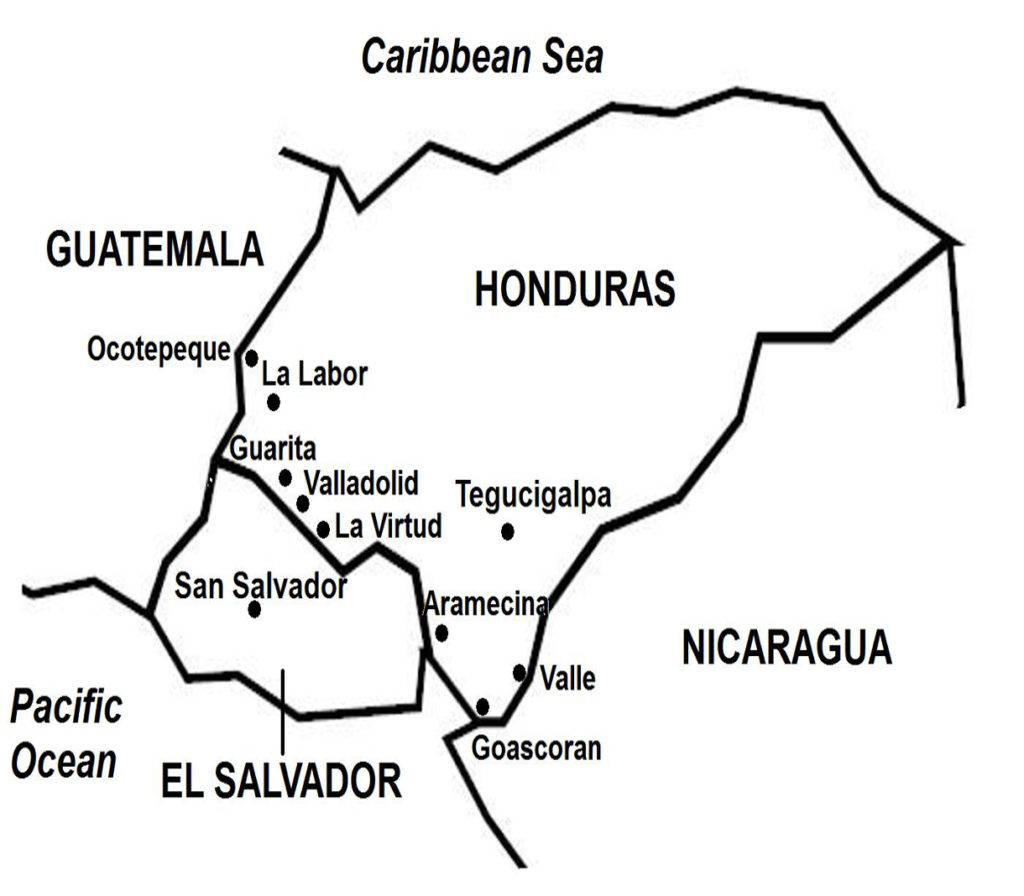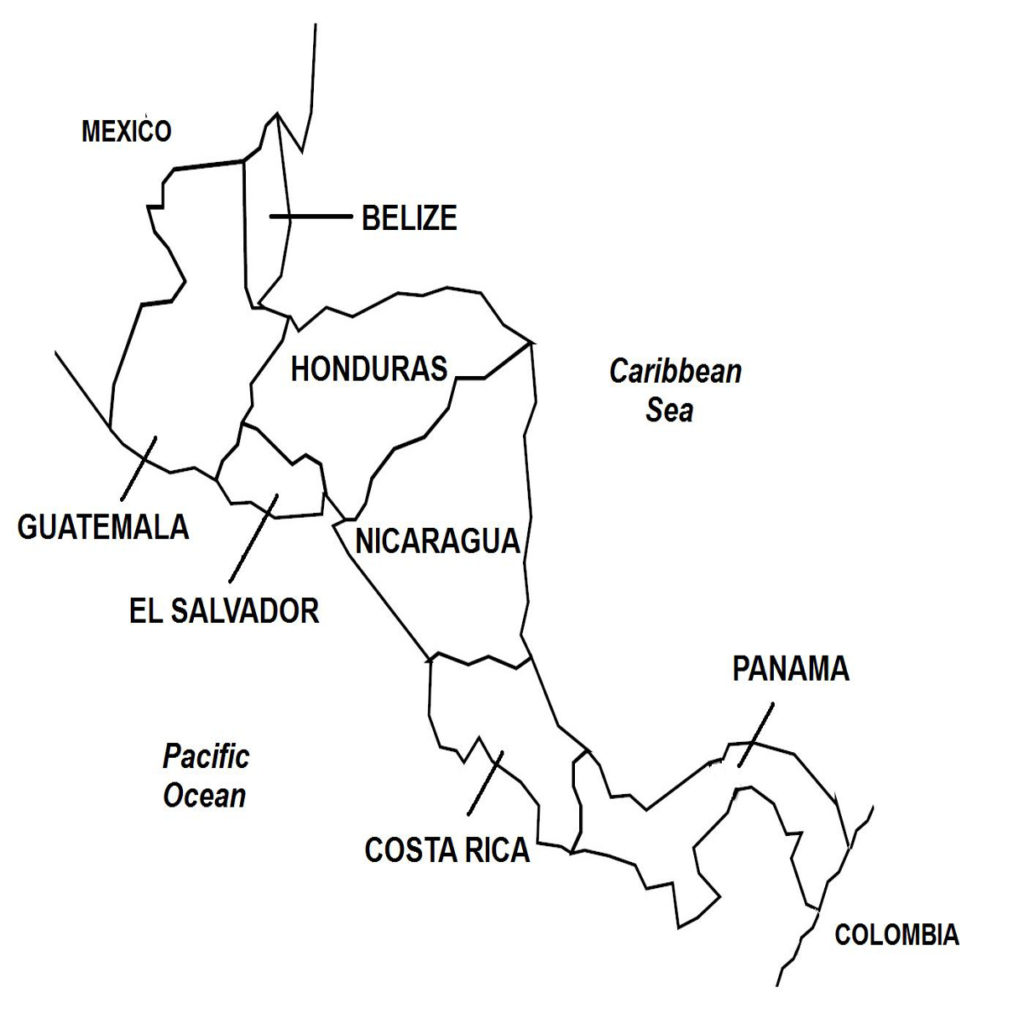
(Excerpts taken from Football Wars – Wars of the 20th Century – Volume 1)

On July 3 and July 14, 1969, Honduran planes flew over Salvadoran air space. El Salvador condemned the territorial violations and sprung into military action. On the afternoon of July 14, Salvadoran aircraft, including C-47 transports that were improvised to dispense bombs, attacked airfields in the Honduran capital Tegucigalpa and other locations. The Salvadoran objective was a pre-emptive air strike to destroy the much larger Honduran Air Force on the ground. However, no significant damage was made on the Honduran planes.
A few hours later and under cover of evening darkness, Salvadoran ground forces crossed the border into Honduras. Major Salvadoran offensives were made in Honduras’ eastern province of Valle, leading to the capture of the towns of Aramecina and Goascoran, and in Ocotepeque Province in the west, where Nueva Ocotepeque and La Labor were taken. The Salvadoran Army also captured Honduras’ north central border towns of Guarita, Valladolid, and La Virtud, and the Honduran islands in the Gulf of Fonseca, off the Pacific coast.
A few hours later and under cover of evening darkness, Salvadoran ground forces crossed the border into Honduras. Major Salvadoran offensives were made in Honduras’ eastern province of Valle, leading to the capture of the towns of Aramecina and Goascoran, and in Ocotepeque Province in the west, where Nueva Ocotepeque and La Labor were taken. The Salvadoran Army also captured Honduras’ north central border towns of Guarita, Valladolid, and La Virtud, and the Honduran islands in the Gulf of Fonseca, off the Pacific coast.
Background of the Football War By May 1969, the land reform law in Honduras was being fully implemented. Thousands of dispossessed Salvadoran families returned to El Salvador, causing a sudden surge in the Salvadoran population, and straining the country’s economic resources and the government’s capacity to provide public services. El Salvador condemned Honduras, generating tensions and animosity on both sides. Nationalistic sentiments were fueled by propaganda and rhetoric spouted by the media from the two sides.
Such was the charged atmosphere leading up to the three football matches between El Salvador and Honduras in June 1969. The first match was played on June 8 in Tegucigalpa, Honduras’ capital, which was won 1- 0 by the host team. Aside from some fans fighting in the stands, no major security breakdown occurred during the match.
In El Salvador, however, soccer fans were outraged by the result, believing they had been cheated. The Salvadoran media described the football matches as epitomizing the “national honor”. After the defeat, a despondent Salvadoran fan died after shooting herself. Her death became a rallying cry for Salvadorans who considered her a martyr. Thousands of Salvadorans, including the country’s president and other top government officials, attended her funeral and joined the nation in mourning her death.
The second match was played in El Salvador on June 15, 1969, and was won 3- 0 also by the home team, thereby leveling the series at one win apiece. The tense situation during the game broke out in widespread violence across the capital, San Salvador. Street clashes led to many deaths, including those of Honduran fans. As a precaution, the Honduran football team was housed in an undisclosed location and driven to the game in armored vehicles. After the game, the Honduran team’s vehicles plying the road back to Honduras were stoned while passing through Salvadoran towns.
In Honduras, the people retaliated by attacking and looting Salvadoran shops in Tegucigalpa and other cities and towns. Armed bands of thugs roamed the countryside targeting Salvadorans – beating up and killing men, raping women, burning houses, and destroying farms. Thousands of Salvadorans fled toward the border to El Salvador. And as the prospect of war drew closer, Salvadoran and Honduran security forces guarding the border engaged in sporadic exchanges of gunfire.
The third, deciding football match was played on June 26, 1969 in Mexico City, which was won by the Salvadoran team 3 – 2 in overtime. Two days earlier, Honduras had cut diplomatic relations with El Salvador. The Salvadoran government reciprocated on June 26, accusing Honduras of committing “genocide” by killing Salvadoran immigrants. The two sides prepared for war by increasing their weapons stockpiles, which were sourced from private dealers because the United States had imposed an arms embargo.
